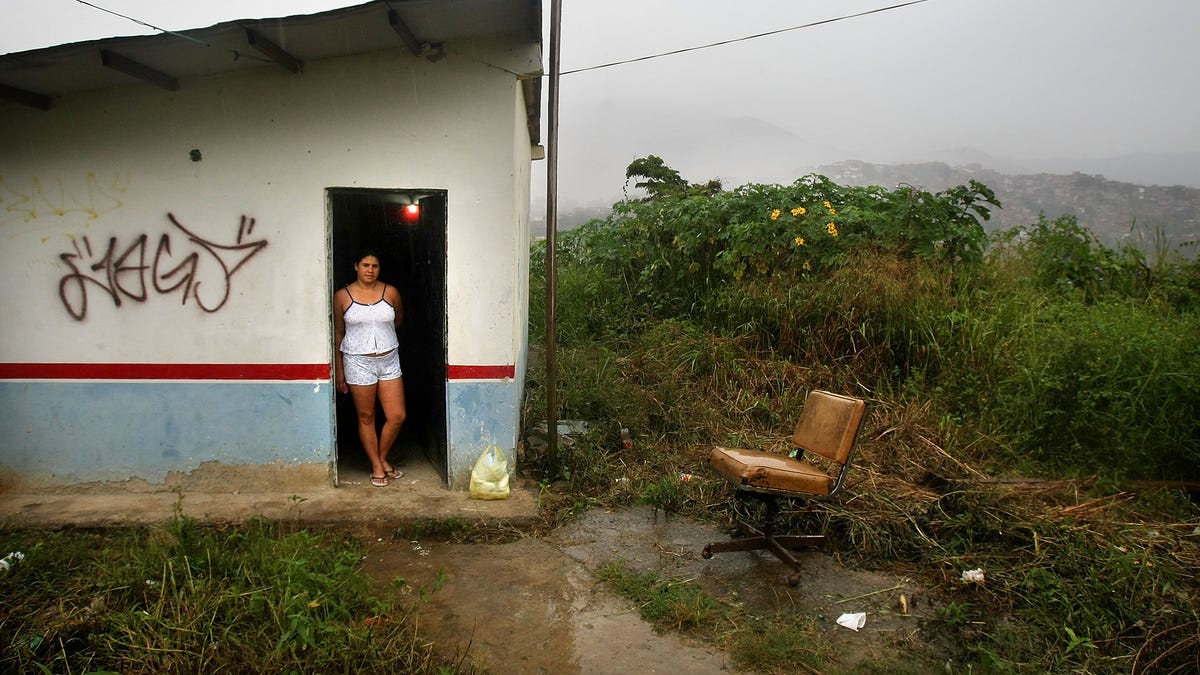
Carolina Olivera stands in her front door in the poor barrio of Petare in Caracas, Venezuela. (2007 Getty Images)
Wary of the highly polluted lake that supplies their tap water, people in Caracas are paying the equivalent of $4.80 for a five-gallon water jug ― twice the price of gasoline.
Lake Mariposa, located five miles away from the capital, has become a favorite spot for followers of Santería, who dump not only garbage but also sacrificed animals. Not long ago, Bloomberg reported, the carcass of a dead dog was seen floating on the lake that supplies tap water to 750,000 Venezuelans.
Those who practice Santería sacrifice animals during religious ceremonies.
The reservoir was last cleaned four years ago, unearthing dozens of animal carcasses, according to a councilor at the Los Salinas municipality interviewed by Bloomberg. Polluted and all, the lake water is pumped to a 60-year-old treatment plant that experts say lacks the technology to make it safe for drinking.
“The treatment process has not adapted to the steady degradation of the water source,” said Fernando Morales, an environmental chemistry professor at Simon Bolivar University in Caracas. “I wouldn’t use this water at home.”
Last week, a failure in Venezuela's main power distribution network deprived 70 percent of the country of electricity for several hours.
Electrical Energy Minister Jesse Chacon said on state TV that the failure was in the "backbone" that carries electricity from the Bajo Caroni region, where 60 percent of Venezuela's power is generated.
Despite possessing the world's largest proven oil reserves, Venezuela has been plagued in recent years by worsening power outages.
As for the water crisis, its roots can be traced back to the limited funds allocated to Hidrocapital, Caracas water monopoly. In 2010 Hidrocapital’s budget was $9.7 million, according to a report by the Environment Ministry. In 1998, a year before Hugo Chavez came to power, the state-owned company had an annual budget of $250 million, according to the company’s former vice president Norberto Bausson.
“Not a drop of water has been added to Caracas’ supply system in 15 years,” he told Bloomberg. “The network is falling apart.”
The current president of Hidrocapital, Ernesto Paiva declined to be interviewed. On its website, the company simply states: “We can guarantee that the water which reaches your home is 100 percent potable.”
The Associated Press contributed to this report.
Follow us on twitter.com/foxnewslatino
Like us at facebook.com/foxnewslatino







































